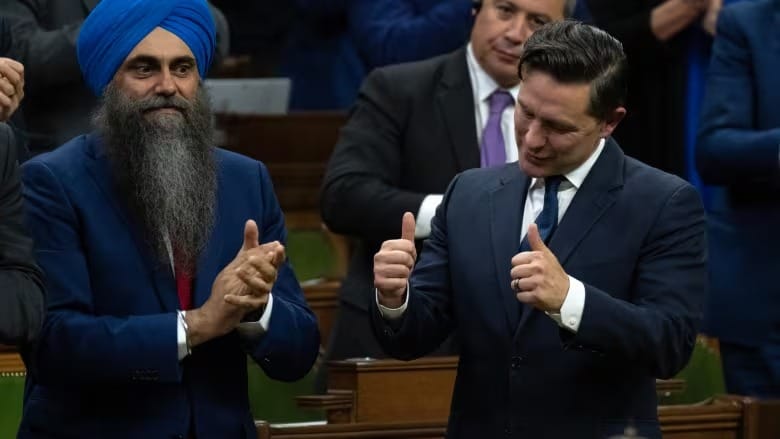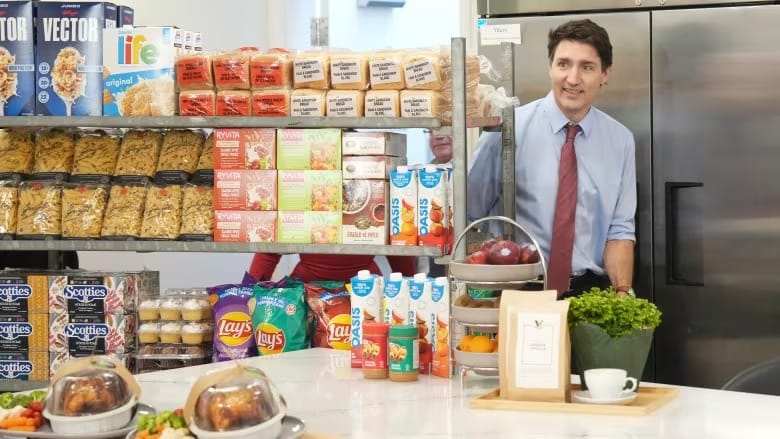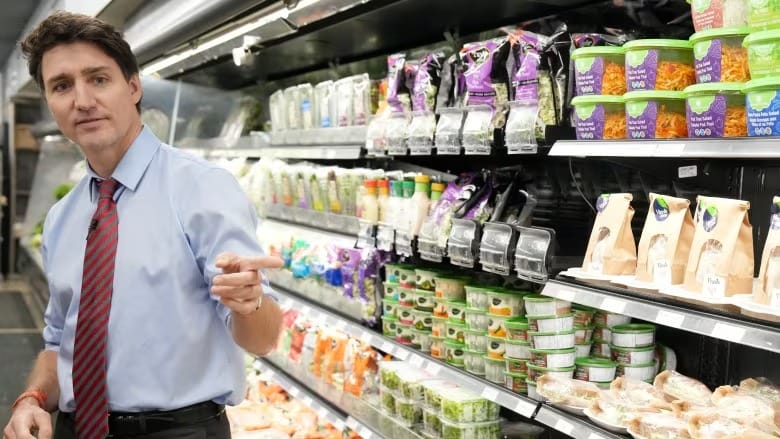After first non-confidence motion failed, Poilievre is back with another one
This latest attempt to bring down the government is also likely to fail

Conservative Leader Pierre Poilievre introduced a non-confidence motion in the House of Commons on Thursday, just a day after the previous motion was unsuccessful.
This new effort to topple the government is likely to fail as well, as the NDP and Bloc Quebecois have already committed to supporting the Liberals—at least for the time being.
The Bloc has given the Liberals until October 29 to enhance pensions and safeguard supply-managed agricultural sectors, such as dairy, eggs, and poultry, from future trade agreements. Bloc Leader Yves-François Blanchet has indicated that if the federal government does not fulfill these demands, he will advocate for an early election.
Following the termination of their supply-and-confidence agreement with the Liberals, the NDP has been ambiguous about how long they will continue to back the government; party representatives have stated they will assess votes on a "case-by-case" basis.
Poilievre's new motion urges MPs to initiate a federal election due to rising home prices and crime rates, among other perceived failures.
"The House has lost confidence in the government and offers Canadians the option to axe the tax, build the homes, fix the budget, and stop the crime," the motion states, echoing Poilievre's key slogans.
If this motion fails as anticipated, the Conservatives will have at least three more opportunities to introduce non-confidence motions before Christmas in their efforts to unseat the Liberals and call for a federal election.
There may also be other chances to challenge the Liberals through upcoming votes on spending issues, which are typically viewed as confidence votes.
Under Canada’s Westminster system of parliamentary democracy, the prime minister and their government must maintain the confidence of a majority of MPs to remain in power.
To continue winning these confidence votes, Prime Minister Justin Trudeau and his cabinet must persuade at least one of the major opposition parties to support them.
This latest motion follows a tumultuous day in the Commons on Wednesday, during which MPs exchanged sharp remarks and engaged in name-calling.
A crude comment made by a Conservative MP during question period about Trudeau was criticized as homophobic. Trudeau remarked that the Liberal side faces a constant barrage of "crap" from the Conservatives.
In response, Poilievre was accused by Trudeau of lacking concern for single mothers due to his votes against social programs that could assist them. At one point, Trudeau claimed that Poilievre intended to establish a two-tier health care system through privatization, a claim Poilievre dismissed as "disinformation from a flailing and desperate prime minister clinging to power."
Trudeau stated that Poilievre's "little performances, the little rhymes and slogans" are becoming tiresome.
Before question period on Thursday, Health Minister Mark Holland expressed frustration with the opposition parties, especially the Conservatives, for "denigrating" them and throwing "personal slurs all day long."
"They say, 'That's one we're taking. We've got your seat. You're done.' Like, what?" Holland said. "In what other workplace would this be acceptable? Look at their behavior."
Conservative MP Michelle Rempel Garner argued that Trudeau has faced too many scandals—including his vacation to "billionaire island," the WE Charity scandal, the SNC-Lavalin affair, and the blackface incident—and that it's time for him to resign.
"The House environment here is deteriorating rapidly. We need an election—we need an election now," she stated.





